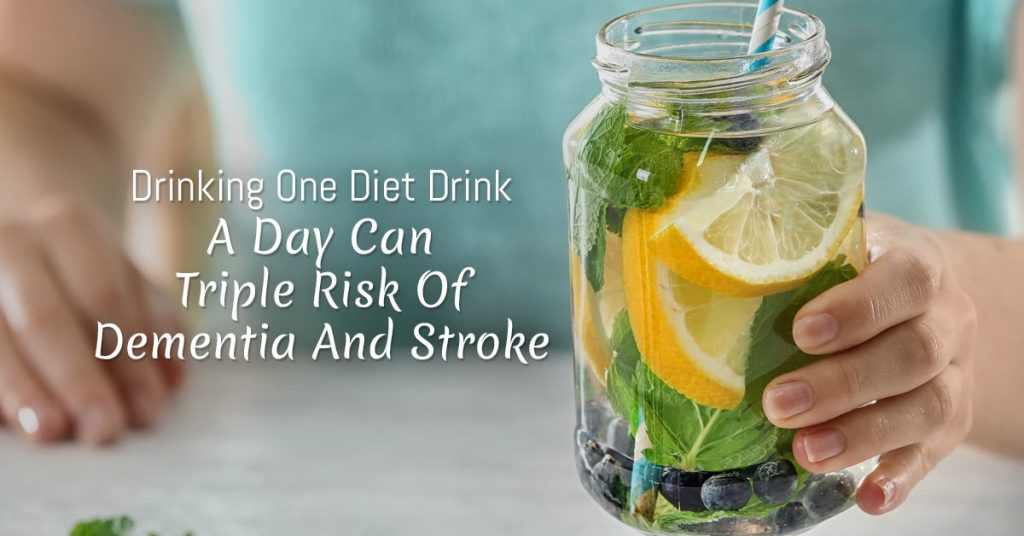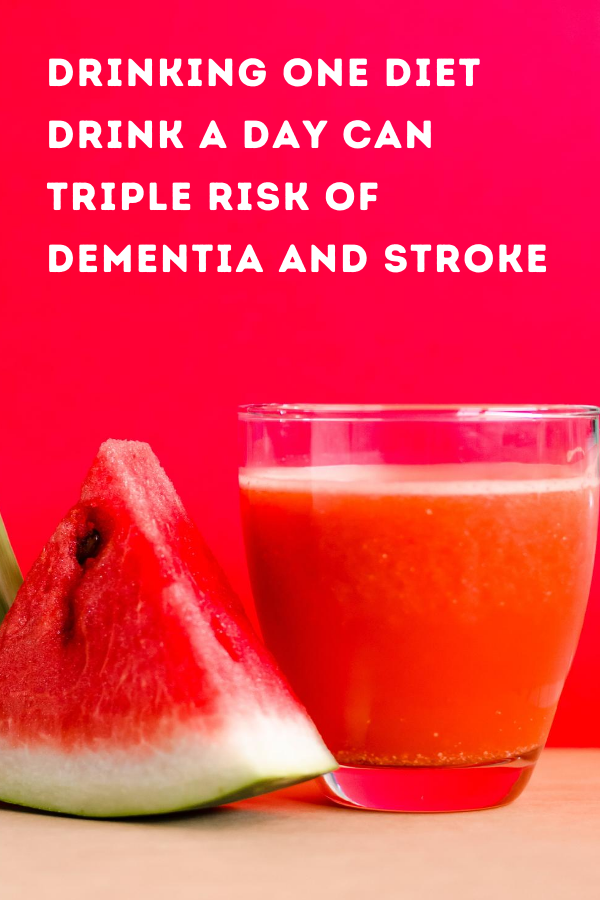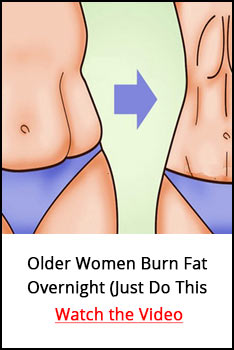
Diet sodas are often marketed as the healthier alternative to their regular counterparts.
But recently, a study reveals that diet drinks can prove to be as bad, if not more harmful for your health!
The Framingham Heart Study, in partnership with Boston University, states that drinking one diet soda a day increases your risk of developing stroke or dementia by up to three times as much, and up to 50% more risk of dying from it.
The reason for the increased risk? Artificial sweeteners, or more specifically, Aspartame. It’s the main ingredient in most diet soda drinks, i.e., diet Coke, Coke Zero, Sprite and others.
As it turns out, aspartame isn’t a healthy alternative but a worse one.
In a 10-year study that involved 60,000 women, those who drank two or more diet soda per day experienced a higher likelihood of acquiring cardiovascular diseases as compared to those who didn’t.
What’s more, the group who regularly consumed aspartame-laden diet drinks had a 50% increased likelihood to die from the disease.
Chief researcher Dr. Ankur Vyas of the University of Iowa mentioned that their findings were similar to previous data, which linked metabolic syndrome with diet drinks.
In fact, even when the demographics were changed and cardiovascular factors were included (physical activity, smoking, body mass index, energy intake, diabetes and sugar-sweetened intake, among others), the results remained the same.
It’s worthy to note that individuals who were prone to drinking diet soda included younger individuals, those who smoked and had a higher BMI, blood pressure and higher risk of developing diabetes.

Are you one of those who are addicted to these diet fizz? Health experts have warned us about the dangers of consuming artificial ingredients.
Sugary drinks are bad enough, but sodas with the “diet” label are even worse as it can triple the risk of having stroke or dementia.
In a related study, the University of Boston has put the controversial ingredient Aspartame under the microscope and see if it’s really a better alternative.
As it turns out, the low-calorie sweetener does a lot more damage to the arteries as compared to regular soda. The researchers put it to the test, and this is what they found:
Adults who drank one or more diet beverages had a higher risk of developing dementia and stroke than those who abstained from it. Furthermore, the biggest culprit in the study were the artificial sweeteners saccharine and aspartame.
After adjusting the data to compensate for caloric intake, physical activity, smoking, diet quality, sex and age, recent and cumulative intake of diet soda increased the risks of Alzheimer’s disease, all-cause dementia and ischemic stroke.
But what about regular soda? Surprisingly, the Boston University researchers found little to no correlation between them and increased dementia or stroke. The scientists warned though, that even if there aren’t any link, people should still turn to good old water instead of sugar-based beverages on a regular basis.
We already know how too much soda can lead to a host of health-related concerns, i.e., obesity, diabetes, cancer and dental problems, so water is still the best beverage to drink when you’re thirsty.
The CDC, or Center for Disease Control and Prevention has put out a warning of the dangers in too much sugar intake. The bottom line? Stay away from diet drinks and control how much sugar you eat everyday.
In light of recent events, sales of soda and diet soda have significantly gone down as people are becoming more health-conscious and making active choices.
According to Reuters, one of the primary reasons why aspartame and diet drinks are on the decline is the awareness regarding the obesity epidemic in the United States and the risks surrounding sugary beverages in particular.
New studies continue to expose the health risks sugar and artificial sweeteners pose, and people are turning to natural ingredients to satisfy their sweet tooth.
Less soda consumption also equals lower fructose corn syrup, which means better population health and awareness.
Nature has some very good alternatives if you want to add sugar to your food. You can try organic honey or maple syrup in breakfast items and dessert, or sweetened water and smoothies using fruit, coconut water or Stevia. Try to keep away from refined sugar if you can and use natural ingredients instead.
It will do wonders for your health and overall well-being!
Enjoyed Drinking One Diet Drink A Day Can Triple Risk Of Dementia And Stroke? Share it with your friends so they too can follow the superfoodsliving journey.
Share on Pinterest

